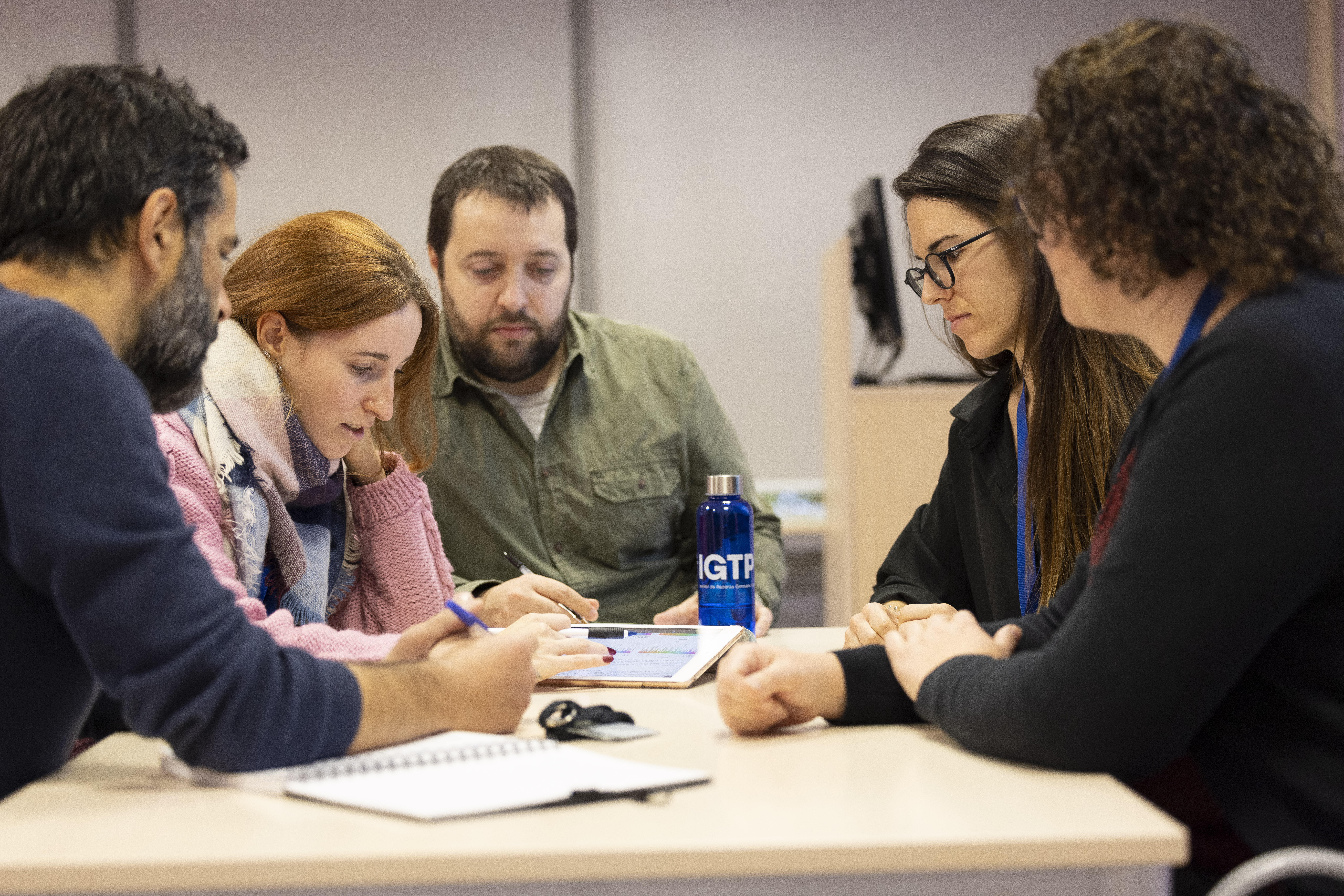GCAT contributes to identify a new genetic region linked with the severity of COVID-19 and to extensively characterize a chromosomal inversion

The Severe Covid-19 GWAS Group, the group that reported the first genetic analysis in early pandemic (NEJM, 2020), presents now the new results of an extended GWAS meta-analysis of a well-characterized cohort of 3,260 COVID-19 patients with respiratory failure and 12,483 population controls from Italy, Spain, Norway and Germany/Austria, that have been published in Human Molecular Genetics. Given the highly variable clinical phenotype of Coronavirus disease 2019 (COVID-19), a deeper analysis of the host genetic contribution to severe COVID-19 is important to improve our understanding of underlying disease mechanisms.
The IGTP GCAT project, led by Dr. Rafael de Cid, is one of the joint Last Authors of this paper, who reports an extended stratified analyses based on age, sex and disease severity a targeted analyses of chromosome Y haplotypes, the human leukocyte antigen (HLA) region and the SARS-CoV-2 peptidome. The results of the work identified a new locus at 19q13.33, including NAPSA gene, which is expressed primarily in alveolar cells responsible for gas exchange in the lung as candidate involved in severe phenotype. Furthermore, they report and characterize an strong association at 17q21.31, a highly pleiotropic (a single gene that controls more than one trait) large inversion polymorphism.
This work, complete the recently published work of the COVID-19 Host Genetics Initiative, A first update on mapping the human genetic architecture of COVID-19, in which GCAT also participate, adding a new layer of complexity to the genetics basis of the highly variable clinical phenotype of Coronavirus disease 2019 (COVID-19), exploring targeted regions of the genome.
Reference
Degenhardt F, et al. Detailed stratified GWAS analysis for severe COVID-19 in four European populations. Human Molecular Genetics. 2022 Nov 28;31(23):3945-3966. DOI: 10.1093/hmg/ddac158. PMID: 35848942; PMCID: PMC9703941.
